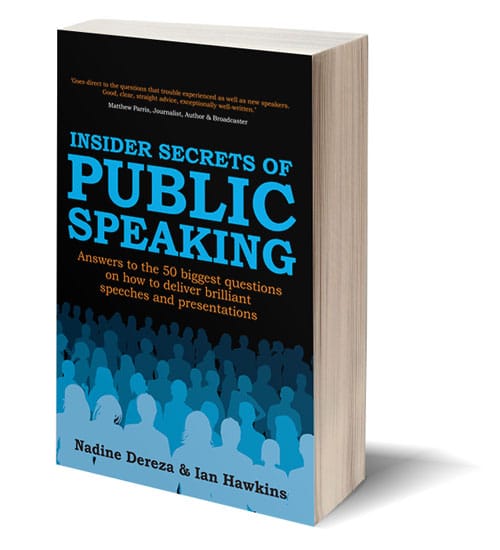By a strange coincidence, the leader of the Labour Party, Ed Miliband faced the nightmare that according to our recent survey, most terrifies people: he forgot a key part of his speech. Normally forgetting your words isn’t a big deal, we tell clients. Only the speaker knows what’s missing – unless of course, you’re a party leader making the most important speech of the year under the gaze of the media and your political enemies.
We conducted an online survey to dig a bit deeper into the established findings that public speaking frequently tops people’s lists of scary things. Worse than clowns, spiders, and even death. But why? What specifically are people afraid of? The answer was unequivocal: 72% of people questioned, dread standing in front of others and forgetting their words.
There is something primal about his fear. We know a very established comedian who has the occasional dream that he is onstage and cannot speak. What’s strange about him having this dream is that he has never experienced something similar in real life. ‘I’ve always got something to say,’ he told us, ‘getting tongue tied is just completely inconceivable.’
By forgetting your words, you are losing status, and people are perhaps most afraid of making a fool of themselves. Speaking from a stage feels like an artificial situation, and in such unfamiliar circumstances, it can be hard to know what to do. The audience is looking to you to lead the way, and being able to convey a message to an audience – whether they are your staff or your clients – can instil a profound confidence in your leadership abilities. If you get it right.
Ed Miliband is smart enough to know that modern audiences need more from a speaker than someone who can read his entire speech from autocue or a script. He attempted to connect with the audience, doing the big speech from memory, to try and show us the real Ed Miliband. Unfortunately, the real Ed Miliband seemed to have forgotten about the deficit.
The last time we checked the reviews for our new book on Amazon, the top comment made particular reference to the section in which we discussed memory techniques. Briefly, we cover using cue cards or notes and some mnemonic systems – tricks to help you remember a speech. Just recently, we saw post-it notes stuck strategically around the stage but out of sight of the audience to prompt the speaker.
Our friend Dr George Fieldman, a respected cognitive behavioural therapist, often treats patients with phobias. ‘The key to overcoming fear is to know what you’re up against, to demystify it, and to put in practical steps to change your attitude towards it,’ he tells us.
We believe that above all else, practice is key. You might not ever get rid of your nerves, but you can control them, rather than letting them control you. Going back to the theme of leadership, self control will help the audience to feel comfortable listening to you, and the real you will come across which in turn adds to your credibility and authority.
After all, it was Michael H. Mescon who said “the best way to conquer stage fright is to know what you’re talking about.”’
Our book, Insider Secrets of Public Speaking, is available on Amazon priced £14.99.
To meet the authors at the book launch in London on 8th October, drop us a line at info@nadinedereza.com
PS Programmes deliver presentation skills, TV and radio media training and crisis media management, tailored to the needs of our clients. This article appears on www.nadinedereza.com and PS Programmes

